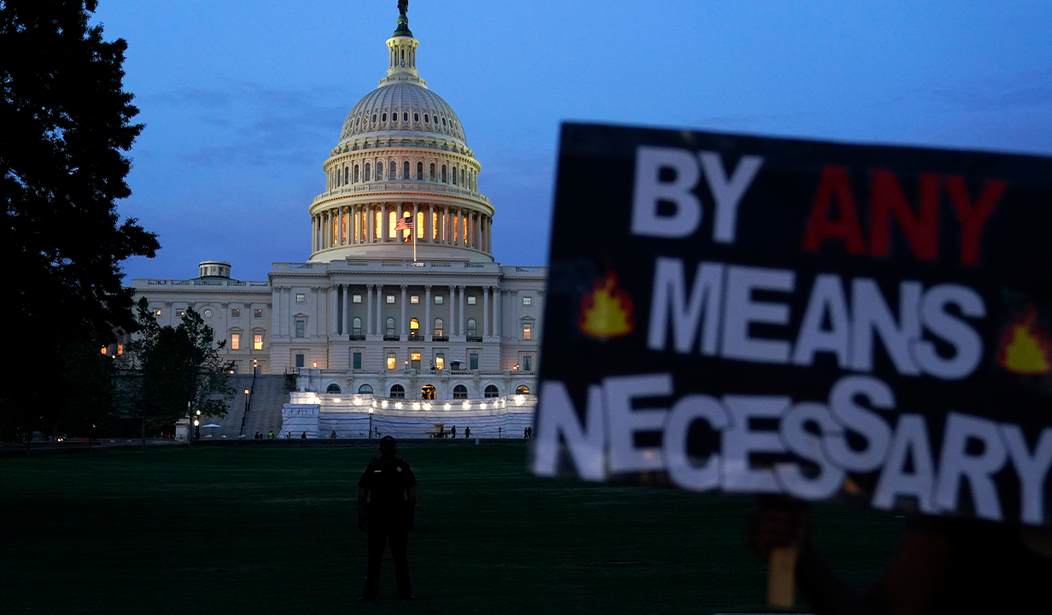It’s mid-September and two different Americas now embrace two different election processes, with each side convinced of the illegitimacy of the other’s process and skeptical of the results. The mainstream media and social media giants have lined up on the expected side, with Facebook recently announcing they’ll somehow support, versus detract from, the integrity of the elections by preventing political campaigns for advocating for their interests or declaring victory before they – Facebook – deem appropriate. Opposition leader Barack Obama seeds doubt about the fairness of the election and even the survival of the country if his slate of candidates does not secure victory, prepared to meddle in the immediate aftermath of the 2020 election as effectively as he did in 2016.
The two Americas support two different systems and chafe at federal authority when wielded by members of the other party. Evidence of the latter is inherent not only in the federal retreat from Portland but in local authorities going so far as to announce the president of another party is unwelcomed at memorial events or, ominously, in danger upon entering their city. The role of law enforcement is questioned and the state’s hegemony on violence is not only challenged by populists but actively surrendered by local authorities. Political revolution is not out of the cards.
The consensus to maintain our federal union has withered further than we are still comfortable recognizing and, presuming we are fortunate enough to avoid catastrophe in the next 90 days, the contours of the Left’s departure from our current constitutional order are coming into sharper relief. In the absence of a Democratic flip of the Senate and the New Deal-like policies that will follow, the effort will take the shape of the normalization of a series of radical systemic departures under the banner of the term democracy reform.
In previous columns, we’ve discussed some of the approximate underlying causes, an important one being that our urban elites are no longer willing to see their vision for the country stymied. It’s natural: they have the numbers, the popular culture, and they were promised they were the coalition of the future. They are cheered on by the media elite and our class of politicized experts, and they wonder why they should be held back from their self-assured vision. On an island, in a different experiment in self-government, you could almost sympathize with them, but it must be remembered: they want to change the deal. For not getting their way, they want to change the deal. And they may revolt instead.
Recommended
In a healthy America not entranced by the power of the state, this would be the opportunity to embrace what our only way out of this is: a return to dual sovereignty where the elite can advance their expert-approved plans and attend fancy parties in their state capitals. Let intrigue be present in Albany, Baton Rouge, and Sacramento, not Washington. Instead, what we’re seeing now on the Left is a push to change the system and rules absent the accompanying bravery to induce the constitutional amendment or convention processes that changes of the magnitude they are discussing would appropriately, and morally, require.
Instead, what we see is a series of interrelated efforts to delegitimize, and deform, our current institutions. Most of the attempts to promote democracy reform are simply that: they point out the supposed injustice of, say, the Electoral College or our Senate representation schema, as if the compromises inherent in those systems weren’t the explicit cost of political union. Broadsides against both of those above institutions, along with court-packing schemes and more, will in the next few years be widely aired, legitimated by a cooperative press, and granted respectability.
But that debate will have an added pressure, a forcing mechanism. While our current system, and the voice it gives to the non-urban parts of our country, are the cost of political union, the ascendant coastal elites are now telling us the price of a continued union will be rejecting that nearly 250-year-old balance so that they can take their proper place as the arbiters of our national future. That their perception of relative underrepresentation is something they’ll no longer accept. That we need to end the deal we made to save the union: an Aexit.
Keep this in mind as we fight over the election results, or you hear constantly about a fictional process called “the popular vote.” In a time of potential crisis, we must recall that our friends and neighbors are not our enemies, but also be wary of the utopians and their supposedly reasonable quest for reform.

























Join the conversation as a VIP Member